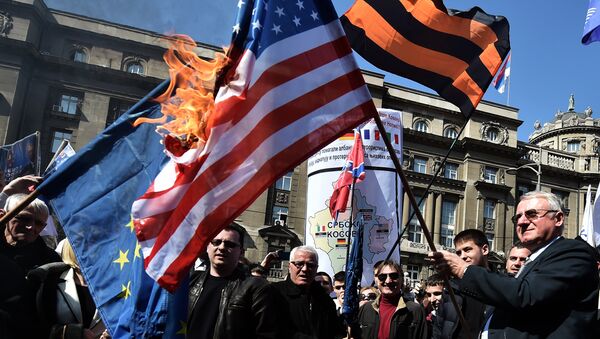According to Aleksic, the lawyers do not plan to apply to the International Court of Justice. Instead, the lawsuits will be filed with the national courts of each of the 20 states.
"We believe that this is within the competence of national courts. These states violated the principles set forth in the seventh chapter of the UN Charter, which prohibits aggression against any state. In addition, NATO has violated chapters 5 and 6 of its own charter, since NATO is a defensive alliance, and not an offensive one. This is about a violation of international law, in particular conventions, which prohibit aggression and the use of force against sovereign states," the lawyer explained.
Members of Aleksic's team are expected to prepare about 20 cases supported by convincing material evidence, like medical documents that indicate a connection between the use of depleted uranium munitions during the bombing and the increase in the number of oncological diseases in Serbia over the last two decades.
"They dropped from 10 to 15 tons of depleted uranium on the territory of the former Yugoslavia. The increase in the number of cancer patients has caused serious concerns. Malignant tumors are found annually in 33,000 Serbian citizens. Every day this terrible disease is diagnosed at least in one child in our country. Compared with 1999, the number of cancer patients has increased by five times, primarily in the south of Serbia, as well as Kosovo and Metohija," Aleksic said.
According to the lawyer, outstanding Serbian doctors, oncologists and toxicologists will participate in the preparation of the lawsuit.
"All our statements are evidenced by the fact that 45 Italian soldiers who served in those areas of Kosovo which were affected by the bombing with depleted uranium eventually got cancer. The court acknowledged the fact that the responsibility for the incident must be borne by the State of Italy, and now it pays serious compensation, from 200,000 to 1,200,000 euros to each person diagnosed with the disease. Our lawsuit will be based on that," the lawyer said.
In 1998, an armed conflict broke out between Kosovo Albanian independence supporters and Yugoslavia, as militias were seeking independence for Kosovo and Metohija. The following year, NATO intervened in the conflict without UN approval and started bombing Yugoslavia.
The bombing killed hundreds of civilians, and destroyed the country's infrastructure including bridges, industrial plants and public buildings.




